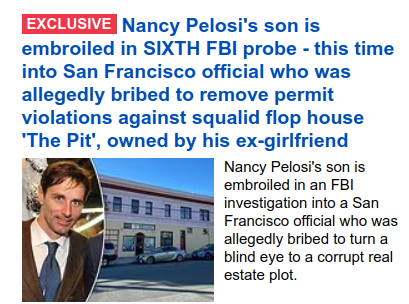![]()
EXECUTIVE SUMMARY

Leftist billionaire George Soros wields a level of influence in American politics that makes him unrivaled among the left’s most powerful activist donors. He has spent decades and more than $32 billion building an unparalleled network of allies in almost every field of endeavor. That power doesn’t just impact American opinion. Soros, his Open Society Foundations and the charities they fund exercise significant influence around the world — because of his numerous connections with the news media.
Soros’ millions give him access to major media figures and top news outlets, in addition to prominent executives at every level of government around the globe. The journalism groups that Soros supports have the ability to mold public opinion on practically every continent and in many languages. They also insulate him from inquiry because reporters see him as an ally, not a target for investigation.
MRC President Brent Bozell said in a statement that “George Soros’ money buys a lot of things. It buys sympathetic coverage of his radical views on criminal justice, abortion, racial politics and climate extremism. And it buys protection from criticism by anyone on the right.”
 The 92-year-old liberal philanthropist’s multimillion-dollar efforts promote his personal agenda encompassing some of the most radical leftist ideas on abortion, Marxist economics, anti-Americanism, defunding the police, environmental extremism and LGBT fanaticism. Soros reached the pinnacle of his status with top TV news network stars and major news outlet executives involved in the groups he funds. MRC Business examined the breadth of Soros’ influence through global media in an extensive, three-part investigative series. Here are the results:
The 92-year-old liberal philanthropist’s multimillion-dollar efforts promote his personal agenda encompassing some of the most radical leftist ideas on abortion, Marxist economics, anti-Americanism, defunding the police, environmental extremism and LGBT fanaticism. Soros reached the pinnacle of his status with top TV news network stars and major news outlet executives involved in the groups he funds. MRC Business examined the breadth of Soros’ influence through global media in an extensive, three-part investigative series. Here are the results:
- 253 Journalism/Media Groups Tied to Soros: At least 253 organizations across the world that focus on news and activist media were funded by Soros’ organizations. A number of these groups wield massive power over the flow of information in international politics. The Soros-funded, liberal outlet Project Syndicate claimed its commentaries were published 20,393 times in 156 countries in 2021. Project Syndicate boasted its articles also have appeared in 66 different languages. Soros gave $1,532,105 to Project Syndicate between 2016 and 2020. Another leftist U.K.-based outlet funded by Soros, openDemocracy, claimed it “attracts more than 11 million visits per year” and has projects published “in Russian, Spanish and Portuguese as well as English.” Soros gave openDemocracy $1,633,457 between 2016 and 2020. The Poynter Institute’s Soros-funded International Fact-Checking Network controls global fact-checking for 100 organizations and influences much of Big Tech content and social media with that power. Soros gave the IFCN $492,000 between 2016 and 2020. (The total income for IFCN in 2021 was a mere $2.4 million.)
- Views Pushed by Soros-Funded Outlets Are Radical, Dystopian: openDemocracy published an op-ed from a “queer communism” activist who said the COVID-19 crisis “shows it’s time to abolish the [nuclear] family.” The outlet also justified Palestinian terrorist rockets being fired into Israel as “a necessary counter-discourse” to what it dubbed a “colonial power.” Project Syndicate pushed a piece by a Soros-funded economist who argued the need for a global “climate lockdown” if the world didn’t undergo a radical green economic transformation. It also published propaganda by former Iranian president and anti-American extremist Hassan Rouhani, who threatened further conflict with the U.S. in his 2014 column for Project Syndicate if an agreement on his country’s nuclear program wasn’t reached. The Soros-backed Free Press pressured the Federal Communications Commission to label former President Donald Trump’s coronavirus briefings “hoaxes” and censure broadcasters that aired them.
- $131 Million to Advance Soros’ Leftist Global Media Agenda: Soros’ Open Society Foundations (OSF) gave $131,111,250 to journalism and media organizations around the globe between 2016 and 2020 to push his radical global agenda on issues like climate change, opposition to the traditional family, anti-Americanism, abortion and race. But that’s not all. The Soros Economic Development Fund, the impact investment arm of the Open Society Foundations, spends hundreds of millions of dollars around the world in “private-sector investments to advance” OSF’s left-wing agendas such as “racial equity” and “climate justice.” The organization states it has doled out $400 million to 54 countries as of April 2022, $9.3 million of which went toward “independent media.”
- 54 Soros-Tied Figures Linked to Major Media: MRC found at least 54 media figures (e.g. anchors, columnists, editors, news executives and journalists) who are prominent individuals in news and activist media, in addition to some of the most powerful media conglomerates in the United States and abroad. These included figures like NBC Nightly News anchor Lester Holt, CNN Chief International Anchor Christiane Amanpour, The Washington Post executive editor Sally Buzbee, PolitiFact Editor-In-Chief Angie Drobnic Holan and Bloomberg News co-founder Matthew Winkler.
RECOMMENDATIONS
MRC Business has several recommendations for the media to address their clear conflicts of interest regarding Soros:
Reject Soros Cash
No purportedly ”objective” journalist should serve on a board or advise any outlet financed by Soros, such as National Public Radio. If academics do so, they should be open about their affiliations and journalists should cover those.
Question Motivations of Sources Funded by Liberal Billionaires
Reporters and editors should be aware when a network of linked organizations deliberately promotes a story. Reporters should not only question the motives of such instances, but also the facts of the case — whether it’s on the right or the left.
Spend Time Investigating Soros
Journalists have no trouble finding incentive to do detailed analysis of top conservative organizations and donors, but spend little time questioning the motives or funding of liberal organizations. Reporters should do a more detailed investigation into Soros’ Open Society Foundations and its global influence.
Investigate Soros
Many journalists, anchors, reporters and editors sit on the boards of Soros-funded organizations while simultaneously enjoying prominent roles in news media. Journalists should look into possible conflicts involving their counterparts, whose objectivity could be compromised by their connections to radical liberal billionaires like Soros.
Disclose Potential Conflicts of Interest
The Society of Professional Journalists Code of Ethics states that journalists should “[a]void conflicts of interest, real or perceived” and that they should “[d]isclose unavoidable conflicts.” Journalists involved in Soros-funded operations should hew to those guidelines and avoid connection to Soros and his allies.
READ MRC BUSINESS’ ENTIRE THREE-PART SERIES ON SOROS’ GLOBAL MEDIA INFLUENCE BELOW:
George Soros: Propaganda Powerhouse
Groups Funded by Google Overwhelm SCOTUS with Briefs Defending Google
Dozens of groups that are funded by Big Tech giant Google have been filing multiple amicus briefs with the Supreme Court of the United States, arguing in favor of Google ahead of a decision as to whether or not the company should be held accountable for content published on its various platforms.
According to the Washington Free Beacon, at least 40 such groups, including nonprofits, trade associations, and legal organizations with direct financial or personnel ties to Google have filed such briefs in the case of Gonzalez v. Google. These filings together make up at least one third of the total briefs submitted in the case.
The case focuses on the controversial Section 230, a law which shields Big Tech companies from liability for third-party content published on their sites. If Section 230 is ultimately overturned, companies would be far more susceptible to legal action for such content. A ruling against Google would make the company and all of its subsidiaries, including the video-sharing platform giant YouTube, more vulnerable to lawsuits in the future.
One prominent example of what post-Section 230 action against a Big Tech company would look like is the pending case of the family of a woman who was killed in the November 2015 terrorist attacks in Paris, France. Her family argues that, because one of the terrorists involved was radicalized after watching an ISIS video on YouTube, the tech giant should have to pay damages to the family.
The Supreme Court does have a requirement in place ordering any corporations that submit amicus briefs to disclose any parent companies or public companies that own 10 percent or more of their stock, in order to present possible conflicts of interest; however, there is no such requirement for nonprofit groups. But Google’s efforts to fund nonprofits in return for such favors is well-documented nonetheless; last year, Google itself published a list of its “most substantial contributions,” which featured such groups as the Computer and Communications Industry Association (CCIA) and the Center for Democracy and Technology.
“These Big Tech shills are bought and paid for and should be in no way considered independent,” said Mike Davis, founder of the Internet Accountability Project. “The key to Big Tech’s strategy to fend off legislation, regulation, and damaging court rulings is their willingness to reach into their deep pockets and buy off critics.”
Oral arguments in Gonzalez v. Google will begin on February 21st.







